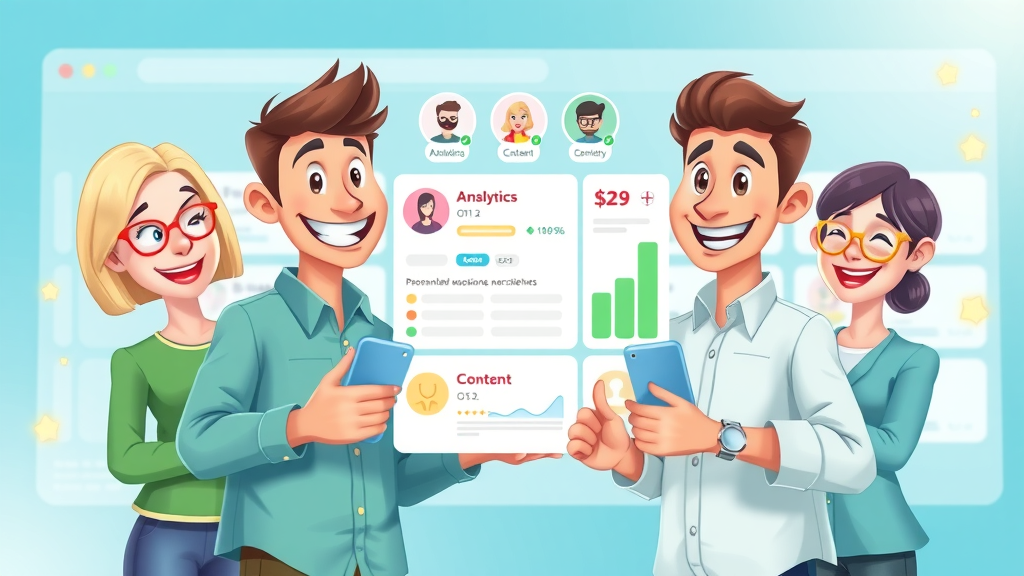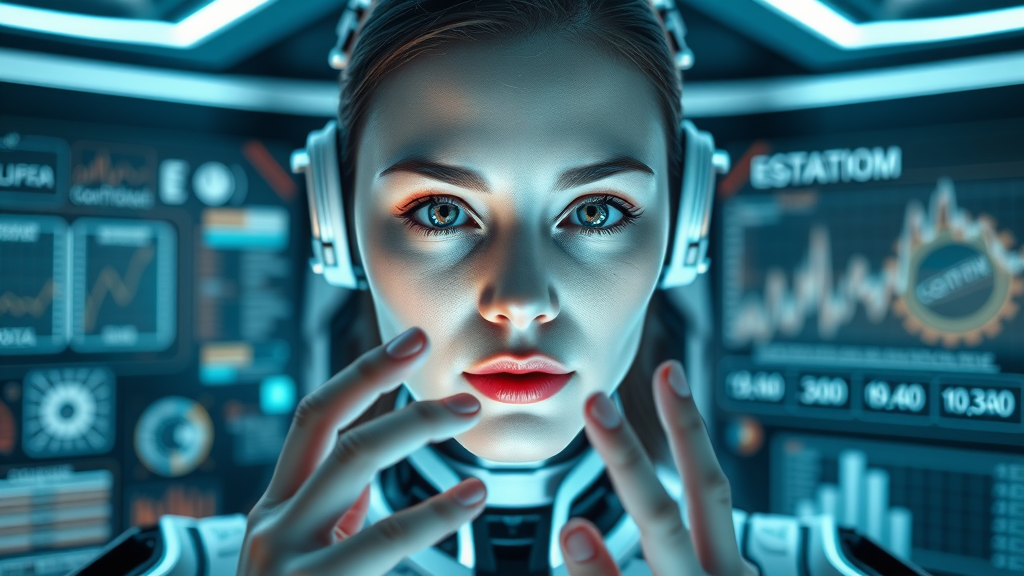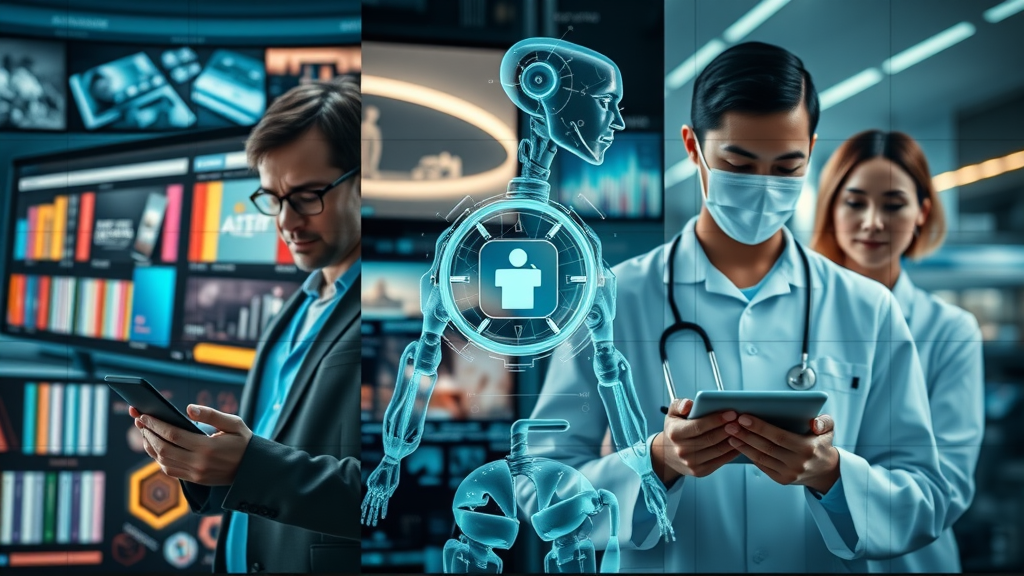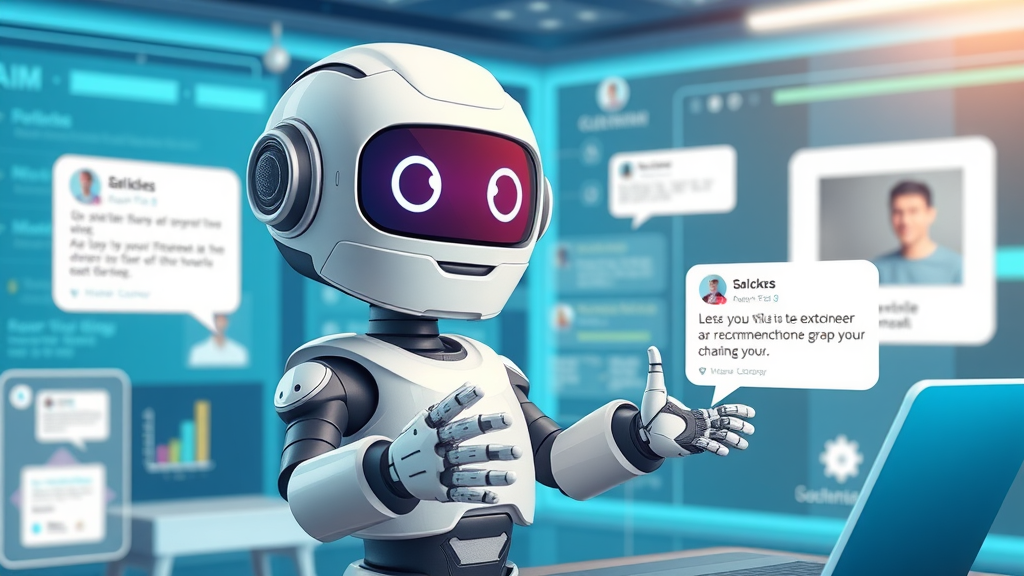
Did you know that businesses leveraging personalized content generation see up to a 40% increase in conversion rates ? With artificial intelligence making tailored content not only possible—but scalable—brands are revolutionizing user experience and outperforming outdated mass marketing tactics. In today’s data-rich landscape, understanding and activating personalized content generation isn’t just an advantage—it's essential. This guide demystifies the process, delivers powerful industry secrets, and shows you exactly how to capitalize on these emerging strategies.
Harnessing Personalized Content Generation for Compelling Results
Personalized content generation is rapidly reshaping the way businesses communicate with their target audience . The ability to create personalized experiences, tailored to distinct user audience segments , delivers measurable results in engagement, retention, and conversions. By analyzing user data and employing generative AI tools , companies now generate content that resonates with specific groups, whether that’s through thoughtful emails, targeted blogs, or individualized product recommendations.
- Why businesses are rapidly adopting personalized content generation: With competition intensifying across industries, brands are choosing personalization to break through the clutter. Not only does it improve the customer experience , but it also maximizes marketing ROI.
- Real-world examples showcasing content personalization: Leading retailers now use AI-powered systems to recommend products aligned with customer preferences. Streaming platforms, too, suggest content based on prior engagement, boosting watch times and satisfaction.
- Generative AI’s pivotal role in personalized content generation: Today’s ai tools don’t just automate—they personalize. By assessing customer data , demographics, and intent signals, they ensure content consistently aligns with the current needs of each user group, making large-scale, tailored content feasible.
What Personalized Content Generation Can Help You Achieve
The true power of personalized content generation becomes clear when we evaluate its impact on multiple business fronts. It enables the delivery of relevant content to precisely segmented audiences, opening doors to improved conversion rates and a seamless user experience . Generative AI and similar technologies directly support each of these goals—from automating content production, to perfecting social media targeting.
- Deliver relevant content to segmented audiences: Mapping content to audience segments boosts engagement, as users receive material that matches their interests and situation.
- Enhance user experience with content personalization techniques: A more personalized journey translates directly into deeper loyalty and repeat business.
- Boost conversion rates and marketing campaign effectiveness: Customized offers and messaging elevate the conversion rate across digital platforms.
- Optimize social media impact through AI tools: Generative AI designs recommended posts, captions, or ads that pinpoint users’ interests, increasing shareability and visibility.

What You Will Learn About Personalized Content Generation
- How artificial intelligence powers tailored content creation
- The essentials of building a content personalization strategy
- Best practices for using ai tools in personalized content generation
- Methods to improve customer experience and engagement
Understanding Generative AI in Personalized Content Generation
Generative AI is revolutionizing content creation by enabling marketers to build tailored content at scale. By harnessing machine learning and user data , it actively predicts and generates material that meets the preferences and behaviors of each individual user. Unlike traditional approaches to tent creation , generative AI automatically adapts to changing audience needs, ensuring messaging is always relevant.
Businesses, especially in social media and e-commerce, increasingly turn to ai tools to process large data sets and personalize messaging in real time. This not only enhances customer engagement , but ensures every marketing campaign is data-driven, evidence-backed, and conversion rate optimized.
The Mechanics of Generative AI for Content Creation
The backbone of personalized content generation lies in its sophisticated use of machine learning algorithms and detailed user data . These systems track and interpret behavioral signals—such as site visits, purchase history, and past interactions—enabling highly targeted content creation .
- Role of machine learning and user data in personalized content: Machine learning actively learns from customer data to predict and deliver the next best action, message, or offer—leading to content that resonates with specific audience segments.
- Differences between generative AI and traditional tent creation: Traditional methods rely on static segmentation and manual updates. Generative AI, however, evolves with the user, adjusting content dynamically for optimal user experience .
How Generative AI Tools Create Personalized Content
Modern ai tools for personalized content generation are remarkably versatile. They can generate blogs, automate responses, design targeted product recommendations, and even create visuals that match the aesthetic and informational needs of the target audience . Such tools assess ongoing feedback and data trends to refine outputs constantly.
- Overview of leading AI tools for content personalization: From OpenAI’s GPT models to Adobe’s Sensei and Salesforce Einstein, each integrates seamlessly with major marketing platforms for real-time, at-scale deployment.
- Generating tailored content and product recommendations: Advanced models use machine learning to create individualized product recommendations , customized emails, and perfectly-timed website pop-ups that efficiently drive conversions.

Building an Effective Content Personalization Strategy
Crafting an impactful content personalization strategy begins by identifying your audience segments and gathering meaningful customer data . By integrating leading ai tools for automated tent creation , brands streamline processes and personalize customer touchpoints across all marketing campaign channels.
- Defining audience segments and collecting customer data: Break down your market into personas, behaviors, or demographic groups, using analytics and CRM data.
- Integrating AI tools for automated content generation: Employ robust ai tools designed for deep integration, ensuring content is always fresh, targeted, and reflective of user needs.
- Personalizing customer experiences across marketing campaigns: Unify messaging to guarantee consistent, cross-channel personalized experiences , whether by email, in-app, or social content.

Metrics for Measuring Success in Personalized Content Generation
Measuring the success of personalized content generation goes well beyond simple traffic tracking. Key metrics like conversion rates and detailed customer engagement metrics show whether your strategy has the desired impact on your target audience .
- Tracking conversion rates and customer engagement: Regular monitoring of sign-ups, purchases, click-throughs, and dwell time provides fast feedback loops for what content is truly delivering results.
- Analyzing user experience improvements: Use customer satisfaction surveys, NPS scores, and qualitative feedback to gauge if your personalized marketing investments are truly translating into superior user experience .
Impact of Personalized Content Generation on User Experience
Delivering tailored content at the right time enhances customer experience like never before. Brands that invest in AI-driven personalization see dramatic increases in loyalty, on-site engagement, and conversion events, especially when content matches the unique needs and desires of each user.
Companies like Amazon, Netflix, and Spotify are widely cited for using advanced generative ai to customize product recommendations and streaming suggestions, often in real time. The outcome? A personalized experience that feels intuitive and empowering, earning the trust and advocacy of users worldwide.
Delivering Tailored Content for Enhanced Customer Experience
- Case studies: Increased customer engagement through personalized content: Brands that incorporated AI into their marketing workflows experienced up to a 25% lift in customer engagement and major improvements in retention. Personalized homepage content, adapted to browsing behaviors, keeps users actively discovering.
- How social media platforms leverage AI to personalize feeds: Social networks such as Facebook, TikTok, and Instagram deploy elaborate machine learning models to organize and deliver relevant content to users—making feeds highly addictive and hyper-relevant.

Overcoming Challenges in Content Personalization
The journey to exceptional personalized marketing is not without its hurdles. Addressing privacy concerns, managing large-scale customer data , and maintaining authenticity can all prove difficult. Fortunately, modern ai tools and a clear content personalization strategy pave the way for sustainable success.
- Addressing privacy and data security with AI tools: Leading solutions employ encryption and anonymization to protect identifiable information while still leveraging key insights for tent creation .
- Avoiding pitfalls in automated tent creation: Even with automation, regular oversight ensures generated content maintains brand voice and aligns strictly with the interests of each audience segment .
“Personalized content generation powered by artificial intelligence is transforming how brands engage, convert, and retain their audiences.” — Digital Marketing Expert
Practical Uses and Success Stories Leveraging Personalized Content Generation
Personalized content generation isn’t just theory—its adoption is changing entire industries. From product recommendations in e-commerce, to curated news in media, and tailored patient communications in healthcare, businesses are unlocking unprecedented value by creating personalized experiences .
Industry Applications of Personalized Content Generation
- E-commerce: Product recommendations and customized offers: Retailers use AI to dynamically showcase products to users based on browsing history, maximizing conversion rate and average order value.
- Media: Personalized news feeds and content curation: Algorithms select stories for readers’ interests, driving longer session times and ad engagement.
- Healthcare: Delivering tailored information to patient segments: AI targets medical resources, reminders, and advice according to each patient’s health profile and needs, improving outcomes and engagement.

Measuring the ROI of Personalized AI-driven Content
Analyzing the ROI of personalized content is crucial for ongoing investment and optimization. Successful AI-driven content strategies demonstrate measurable gains in conversion rate , customer engagement , and retention—outpacing competitors still reliant on generic messaging.
- Analyzing increases in conversion rate, engagement, and retention: Key metrics like lift in repeat purchases, dwell time, or CTRs are connected to strategic personalization. Companies that continually iterate based on data insights maximize both short-term wins and long-term loyalty.
Best Practices for Personalized Content Generation using AI Tools
- Audit your current content for personalization opportunities: Identify weaknesses in your content where relevance can be improved for specific users.
- Leverage customer data and audience segmentation for relevant content: Use detailed analytics to continually refine segments and create content that resonates with diverse audiences.
- Use generative AI tools for efficient and scalable content creation: Harness ai tools to automate and personalize at scale, maintaining relevancy and consistency.
- Test and optimize marketing campaigns using conversion rates analytics: Deploy A/B testing, monitor conversion rates , and use insights to finetune future efforts.
- Maintain transparency around data use to foster trust: Clearly communicate your data practices, respect consent, and instill confidence through ethical AI deployment.

Benefits and Challenges of Personalized Content Generation
| Benefit | Challenge | AI Solution |
|---|---|---|
| Increased conversion rates | Data privacy concerns | Machine learning filters |
| Improved customer experience | Integration complexity | Automated workflows |
| More effective marketing campaigns | Resource allocation | AI-driven optimization |
Frequently Asked Questions About Personalized Content Generation
What is personalized content creation?
- Personalized content creation is the process of tailoring digital materials, such as blogs, emails, and product recommendations, to match specific audience segments or individual user preferences using advanced technologies like generative AI.
What is a content personalization strategy?
- A content personalization strategy is a structured plan that uses user data, segmentation, and AI tools to deliver relevant and engaging content experiences tailored to unique audience needs and behaviors.
What is the difference between content generation and content creation?
- Content generation typically refers to the automated production of content using AI and generative models, whereas content creation often involves human-driven, creative processes to craft original material.
What is personalized content in AI?
- Personalized content in AI is digital material produced by artificial intelligence that is specifically tailored to the likes, behaviors, and characteristics of individual users or specific audience segments.
People Also Ask About Personalized Content Generation
What is personalized content creation?
- Personalized content creation leverages AI-driven data analysis to design unique text, images, or recommendations that closely align with the interests and behaviors of targeted users.
What is a content personalization strategy?
- A content personalization strategy is a framework that incorporates segmentation, technology, and data insights to systematically deliver custom experiences to your target audience.
What is the difference between content generation and content creation?
- While content generation often utilizes AI for scalable, rapid outputs, content creation may focus more on manual, high-value editorial work tailored by marketing or subject experts.
What is personalized content in AI?
- In AI, personalized content denotes automatically crafted assets—such as emails, ads, and recommendations—dynamically assembled for each user based on machine learning analysis.

Actionable Insights and Takeaways from Personalized Content Generation
- Adopt generative AI for scalable and targeted content creation
- Leverage customer data with responsible privacy management
- Continuously optimize conversion rates via A/B testing
- Stay ahead with emerging AI tools in social media and marketing
Ready for Next-Level Personalized Content Generation?
- Ready to grow your business? Book your free AI marketing Strategy with our Houston Team today! Visit Stratalystsi.com/strategy
Conclusion: Take actionable steps: audit your content, segment your audience, leverage AI, and focus on consistent optimization to unleash the real power of personalized content generation!
Personalized content generation offers numerous advantages for businesses aiming to enhance customer engagement and drive growth. By tailoring content to individual preferences, companies can significantly improve user experience, leading to increased brand loyalty and higher conversion rates.
For instance, the article “ 5 Powerful Benefits of Personalization ” highlights how personalization can create more engaging experiences, boost conversion rates, and foster customer loyalty. Similarly, “ 5 Powerful Benefits of Personalization ” discusses the role of AI in scaling content production and enhancing SEO performance through personalized content strategies.
If you’re serious about leveraging personalized content generation to elevate your marketing efforts, these resources will provide valuable insights and practical strategies to implement.
 Add Row
Add Row  Add
Add 




Write A Comment